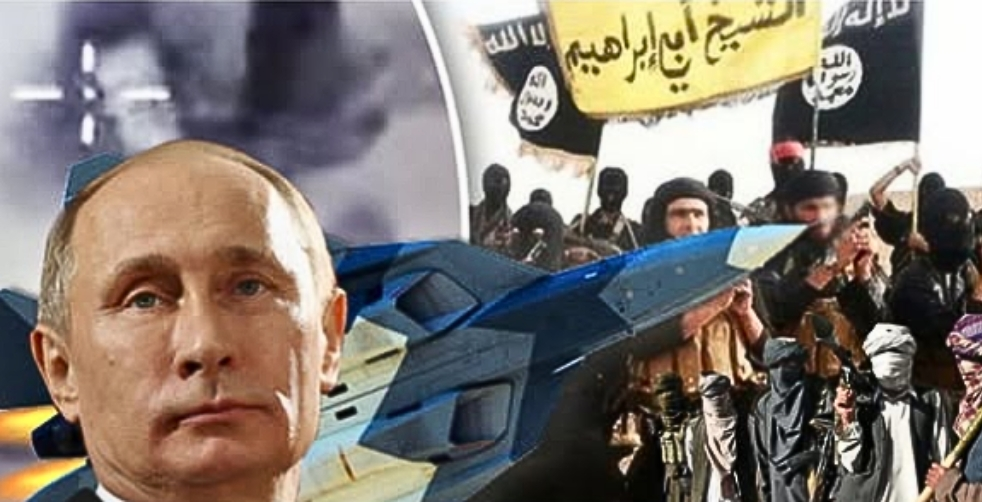It begins with a sentence, spoken without irony but with brutal clarity: “This is not Norway.” Margarita Simonyan, the Kremlin’s chief propagandist, defended the torture of a terror suspect after the Crocus City Hall attack in Moscow. A Russian security officer had cut off the man’s ear. The images circled the globe. But for Russia, this wasn’t a scandal, it was a performance. One that showed just how far the state is willing to go—and with whom.
Because Russia is no longer merely the authoritarian remnant of the Soviet empire. It has become a system that moves in the shadows of global order, forging alliances with those once considered mortal enemies: Islamist terrorist organizations.
The following isn’t fiction. It’s the reality of 2025.
Hezbollah and the Houthis – The Shiite Arm of the Kremlin
Since Russia’s military intervention in Syria in 2015, groups like Lebanon’s Hezbollah and Yemen’s Houthis have become more than battlefield allies, they’re geopolitical partners. Together with Iran, Russia orchestrated military operations, utilized shadow fleets to bypass oil sanctions, and repeatedly blocked UN resolutions targeting these groups. Under Tehran’s guidance, the Houthis attack merchant ships in the Red Sea, but Russian vessels are spared. If you’re on the “white list,” you pass. That’s how Moscow’s brand of pragmatism works.
Hamas – The Old Partner Still Breathes
Even during the Soviet era, Moscow supported Israel’s enemies across the Arab world. Today, that legacy lives on. The Kremlin courts Hamas leaders, supplies them with weapons—including, according to Ukrainian intelligence, arms captured from Ukrainian battlefields, and blocks UN Security Council resolutions condemning the group. Russia did not denounce the October 7 massacres, the murder of Israeli families, the abduction of children. Why would it? Hamas is useful in the war against the West. That’s what matters.
The Taliban – From Enemy to Resource Broker
After the U.S. withdrawal from Afghanistan in 2021, opportunism filled the void. Russia, which still officially labeled the Taliban a terrorist organization, began talks, first in secret, then openly. Today, the Russian Duma debates removing them from the terror list. The reason is as simple as it is cynical: Afghanistan holds mineral wealth worth billions. The Taliban cannot exploit it alone. Russia stands ready. Yesterday’s enemy becomes today’s business partner. History has no moral compass.
ISIS – The One True Enemy
Only one group remains outside this web: ISIS. Particularly its Afghan branch, ISIS-K, which has declared war on Russia. The Crocus City Hall attack, with over 140 dead, is only the latest example. ISIS makes no deals. No diplomacy. They believe only in the caliphate. And Russia sits atop their enemy list.
The Command Behind Red Walls
And while Russia cultivates its network of terror, a leaked document has surfaced that reveals how this system of violence is structured. It’s a classification guide from the U.S. intelligence agency ODNI, specifically section 3.4.3: Military Planning. A single line is enough to unmask an entire logic:

(U) Information providing indication or advance warning that the US or its allies are preparing an attack.
This kind of information is marked Top Secret. With the label NOFORN—not to be shared with foreigners, not even allies. Advance warning is the crown jewel of modern war doctrine. Because war no longer begins with bombs. It begins with spreadsheets. Those who prepare, win.
And Russia? It knows this logic all too well. It doesn’t speak of it. It lives it. By waging wars while feeding others. By turning terrorists into partners and values into weapons. By dissolving the line between state and non-state actors altogether.
What Remains
In the end, we’re not just witnessing a shift in geopolitics. We’re witnessing a new ethic, a creed of obfuscation, complicity, and hatred. Russia does not choose its partners based on principles, but on utility. This is no accident. It is strategy. And it is costing human lives; in Ukraine, in Israel, in Afghanistan, and in Russia itself.
You can ignore this world. You can watch it with cynical detachment. Or you can name it, on behalf of those who no longer have a voice.
